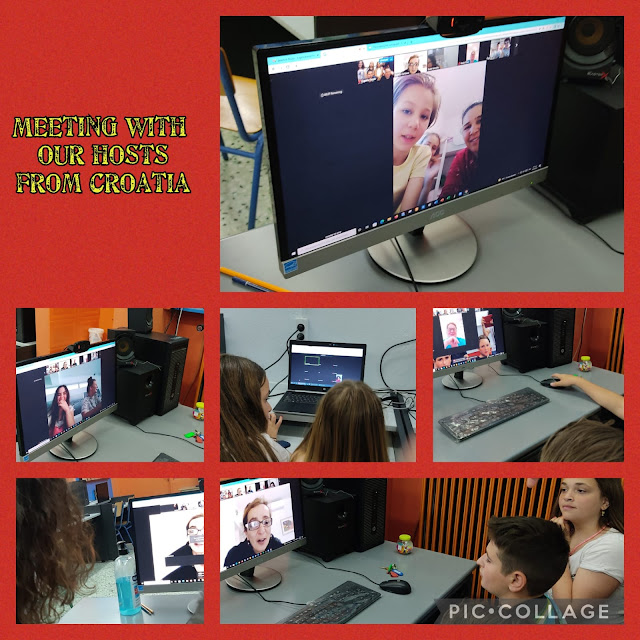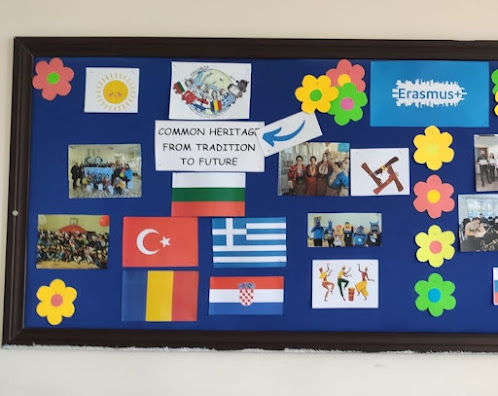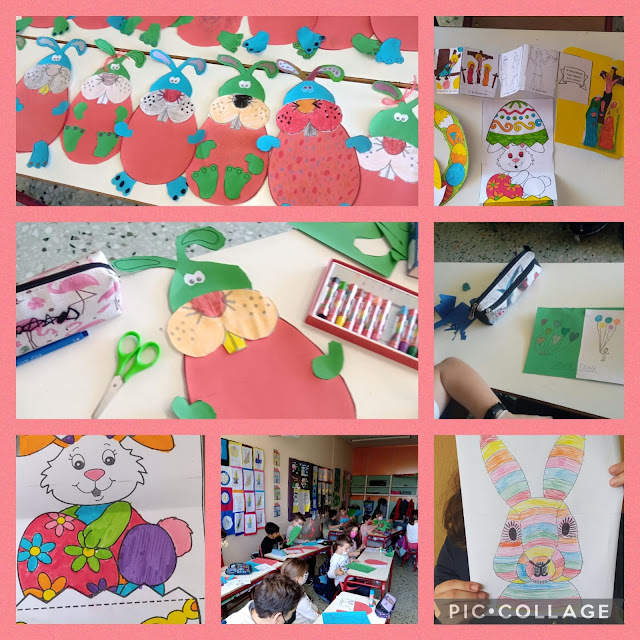Friday 29 April 2022
Sunday 24 April 2022
Chakavian dialect and children
A group of 6 graders (Paulina, Iva, Mirela, Karmen, Ana nad Nina) make up a drama group aiming to preserve Ča from forgetfulness. With the help of an 8 grader Roko who made below video under the title of "And time goes by..." based on the script written by Nataša Jukić, our Education Assistant.
Please
take a look at how children see misunderstangings stemming from the
generations gap but also the most important values that always connect
us...
Author: Nataša Jukić
Saturday 23 April 2022
Friday 22 April 2022
Home
At the top of the blog you will find country links that lead to each country's produced digital products. Don't forget to click on the older posts link at the end of each page to see our older posts. Additionally, you will find links to our common digital products, dissemination, on-line meetings and surveys.
The project, Common Heritage from Tradition to Future, was created in collaboration with Bulgaria, Romania, Turkey, Croatia and Greece and will last 24 months. The intangible cultural heritage is very fragile and if it is not passed down from generation to generation it will disappear. Cultural heritage unites communities and empowers people to imagine a common future. It connects the present, the past and the future. In this case, educational institutions must give more place to cultural heritage issues, attract new generations, strengthen curricula to pass on intangible heritage to future generations.
Our goal is to educate students who have a common heritage, to show tolerance for different cultures, to understand the importance of their intangible cultural heritage and to integrate it locally, nationally and internationally by increasing sensitivity and combining elements of entrepreneurship with cultural elements. for sustainable development.
Our goals through this program are:
1) To develop new material that is addressed to the new generations and to adapt the curriculum so as to ensure the sustainability of the intangible cultural heritage.
2) To transform the elements of cultural heritage into digital content for the education of the younger generations, in order to facilitate the transfer of cultural elements to the new and future generations.
3) To keep alive the cultural heritage by designing tourism products and to encourage students in entrepreneurship for sustainable development.
4) To present our intangible cultural heritage at local, national and international level to create intercultural tolerance and dialogue and to ensure the transmission of the common heritage from generation to generation.
5) To explore new interdisciplinary formal / informal education and practices that will reveal the contribution of cultural heritage to social integrity and economic development and sustainability to enhance the knowledge and skills of students and teachers in cultural heritage education.
Teachers and students are involved in mobility.
In 2 years, about 100 students and 60 teachers will move to the partner countries.
This program will be a journey of gaining new experiences and all together known and unknown fellow travelers will pursue a common goal of twinning schools internationally.
Monday 18 April 2022
18th April - World Heritage Day
Our 4 graders marked the 18th April - World Heritage Day.
18th April World Heritage Day - Greece
UNESCO
United Nations Educational, Scientific and Cultural Organization (since 1945; Paris, France)
Heritage is our legacy from the past, what we live with today, and what we pass on to future generations. Our cultural and natural heritage are both irreplaceable sources of life and inspiration.
Our students found UNESCO Cultural and natural Heritage of the participated countries and some of them decided to paint them on paper.
The children learn that the cultural heritage
belongs to all people regardless of the area in which they
are located.
Sunday 17 April 2022
Friday 15 April 2022
GREECE Happy Easter Friends
Teacher: Katse Apostolia

































